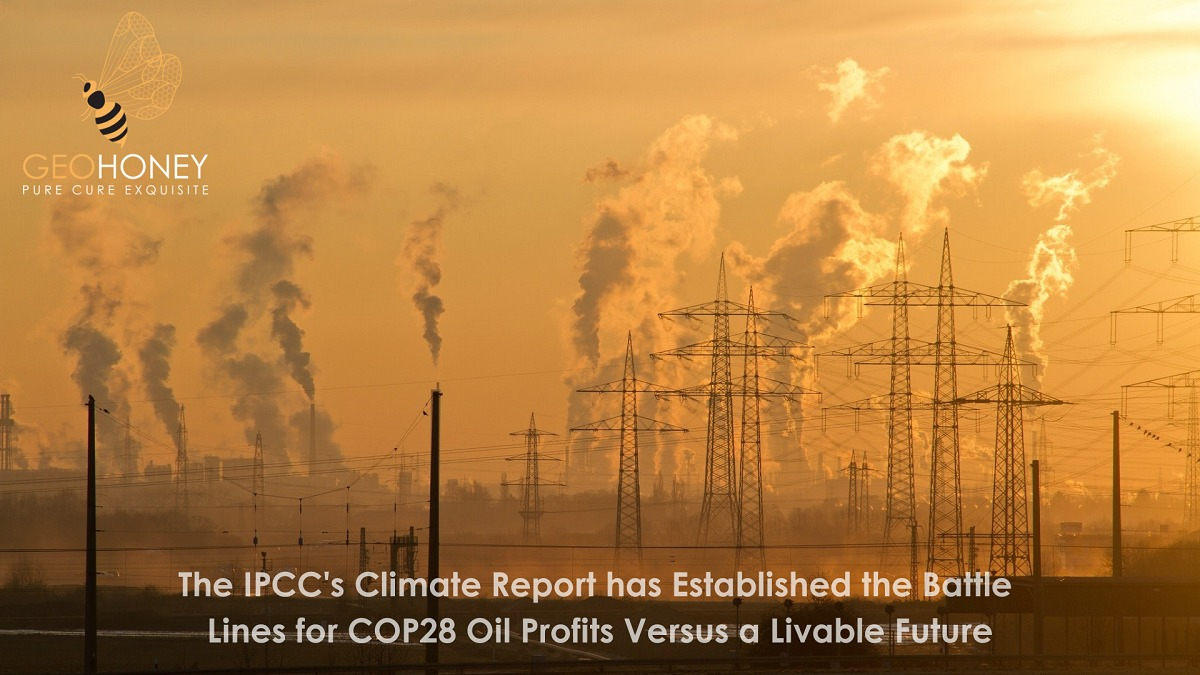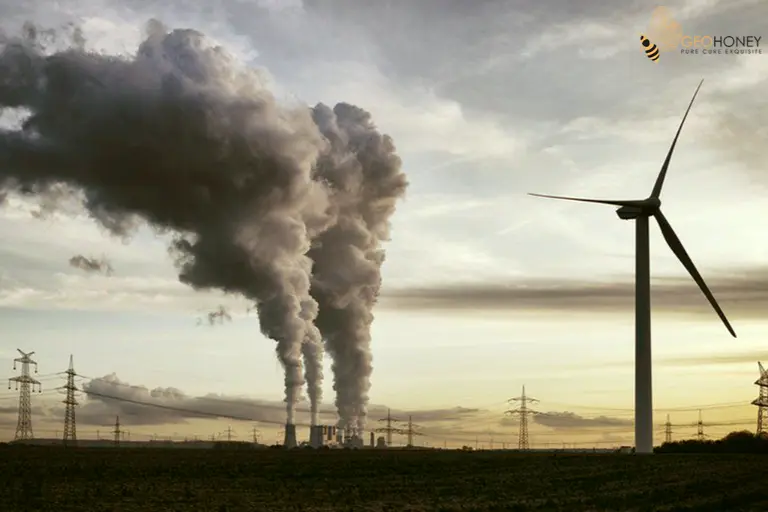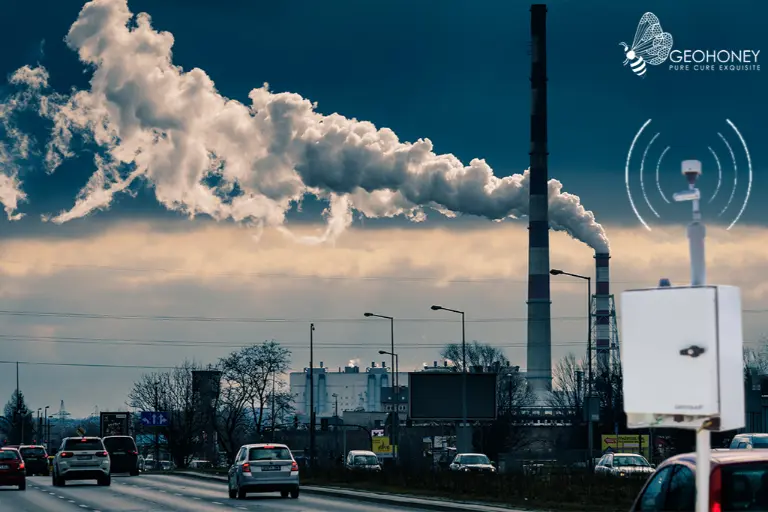- Tokyo: 19:04
- Singapore: 18:04
- Dubai: 14:04
- London: 10:04
- New York: 05:04
The IPCC's Climate Report has Established the Battleground for COP28

The Intergovernmental Panel on Climate Change published a new synthesis report yesterday. The document is significant because it was commissioned by 195 governments, and the summary was agreed upon line by line. It is a universally acknowledged fact and a shared foundation for future action.
The report's findings are both terrifying and overly familiar. Every region is suffering from "widespread adverse effects." Almost half of the world's population is "highly vulnerable" to the effects of climate change. The expected consequences will be severe. It comes to the conclusion that there is a "rapidly closing window of opportunity" to secure a livable future.
The report also outlines what we must do now. The UN secretary general, António Guterres, called it a "guide to defuse the climate timebomb". The message is familiar: immediate and deep reductions in greenhouse gas emissions in all sectors, with net zero carbon dioxide emissions by the early 2050s, using known "feasible and effective" solutions.
However, what good is another report? Of course, it's a good stick to beat governments and corporations that aren't doing enough on climate change, whether at the ballot box, in court, or in public opinion.
However, this report will also be used to prepare for the next UN climate talks, known as Cop28, which will be held in the United Arab Emirates in November and December. These are critical discussions for two reasons.
First, they are hosted by a petrostate, and the Cop28 president is Sultan Al Jaber, the CEO of the Abu Dhabi National Oil Company during the day. With an oil state and an oil man in charge, the entire UN process's credibility is jeopardised unless there is a strong agreement that is consistent with the new synthesis report. Cop28 is set to be a global showdown between oil interests and a livable future, with unprecedented clarity.
Second, countries agreed to assess their collective progress towards meeting the Paris agreement's goals on a regular basis. At Cop28, the first "global stocktake" will be completed. It will cover progress on emissions reductions, adaptation to climate change impacts, and the financing required for these efforts.
Cop28 will demonstrate whether the world's governments are willing to publicly confront the obvious failures that will be revealed - and change course.
Is there any hope for a breakthrough? There has been movement within the confines of the UN talks. The final text of Cop26 in Glasgow included a "phase out" of the use of coal. In the final moments, India and China objected rightly, in my opinion, because they use more coal to generate electricity, whereas the US and EU use more fossil gas. The compromise was a less stringent "phasing out" of coal use (unless its emissions are captured).
Given the magnitude of the climate crisis, this episode may appear arcane and feeble. Nonetheless, after 26 years of negotiations, the genie of publicly naming fossil fuels as the problem was finally released.
Last year, India arrived at Cop27 with a call to "phase out" all fossil fuels. While not included in the final agreement, I heard that close to 80 countries agreed to this proposal during the closed negotiations. This year at Cop28, it is possible that enough countries will coerce the remaining countries into agreeing to phase out all fossil fuels as the only credible response to scientists' warnings. Global civil society will be central to such a pact, loudly demanding this as a key demand.
In practice, this would imply that Cop28 would demand that countries submit improved climate plans covering now to 2030, as well as plans covering 2030 to 2035 that are consistent with rapidly phasing out fossil fuel use before 2050.
The second potential breakthrough involves finance. In one way, the Cop27 talks in Egypt were remarkable: the global south came together like never before. The group known as the G77 plus China demanded that the global north pay for the devastation caused by extreme weather events caused by climate change. They obtained a loss and damage fund by banding together. The global south could do it again when it comes to financing the energy transition.
The order is important here. Finance must be prioritised. There is widespread scepticism in the global south that sufficient financing will be available to ensure a rapid and just energy transition. Critically, the current clean-to-dirty energy investment ratio is 1.5 to 1, but it needs to be 9 to 1 by 2030.
The Coalition of Finance Ministers for Climate Action will meet next month in Washington, DC, to see how serious the global north is about raising the trillions required. Will the United States, the European Union, and the United Kingdom work hard to transform the International Monetary Fund, the World Bank, and the larger international financial architecture in order to mobilise resources on the scale required?
The United Nations climate talks are only one component of the solution to the climate crisis. Indeed, what is happening elsewhere is one of the few constant sources of hope. Millions are fighting fossil fuel development in a variety of ways, including direct action, legal action, and climate diplomacy. Every fraction of a degree is significant. According to yesterday's synthesis report, "the choices and actions implemented this decade will have consequences now and for thousands of years." Let us make those actions matter.
Source: theguardian.com



